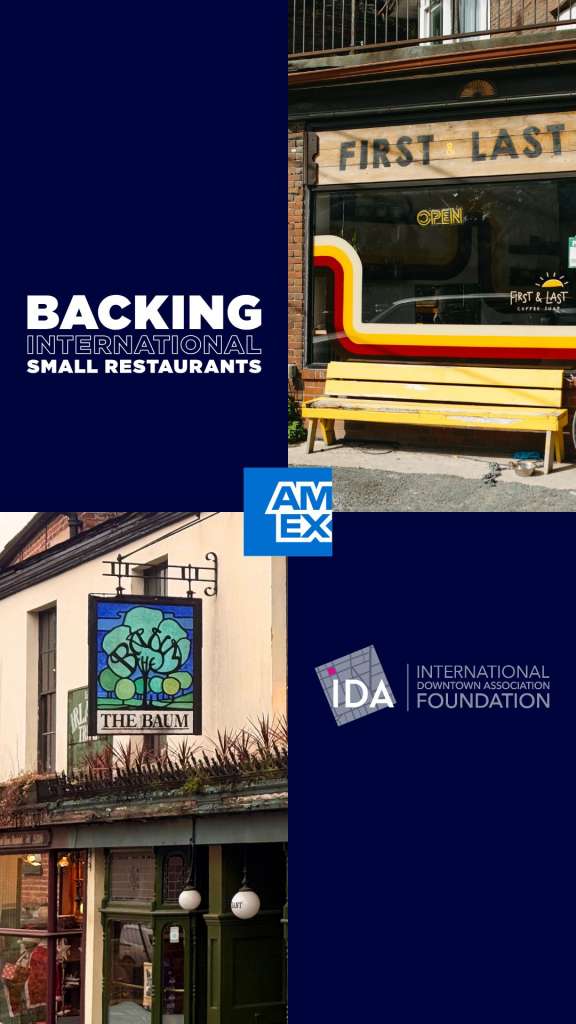April 2025
Whanganui District Council
PO Box 637
Whanganui 4541
Restaurant Association of New Zealand submission on the Whanganui District Council Draft Local Alcohol Policy
The Restaurant Association of New Zealand (the Restaurant Association) welcomes the opportunity to submit on the Whanganui District Council Draft Local Alcohol Policy.
Since 1972, the Restaurant Association has worked to offer advice, help and assistance in every facet of the vibrant and diverse hospitality industry, covering the length and breadth of the country. We’re passionate about our vibrant industry, which is full of interesting, talented and entrepreneurial people.
Whanganui District Council proposal
The Restaurant Association’s priority for Local Alcohol Policies is to ensure that they accurately reflect the different levels of harm from off- and on- licence venues, and the potential impact of LAPs to those in our sector who operate on-licence venues and are already heavily regulated by the conditions of holding such a licence. We are not opposed to those trading conditions – in fact, we see them as commonsense rules which ensure the safe and responsible sale and supply of alcohol.
While our more than 2,500-strong membership is made up of hospitality businesses where food is the hero of their operations, many offer alcohol beverages as a supplement to the culinary experience they provide. In a practical sense, there are far fewer restrictions and regulations for off-licence holders in terms of the responsible sale and supply of alcohol when compared to on-licence holders.
For example, when serving alcohol in an on-licence venue, staff must monitor intake and determine when they must stop service to prevent intoxication. Alternatively at an off-licence venue, customers can purchase as much alcohol as they want, to take home and then consume as much as they want without any concerns. It is clear that a large part of enabling that problem comes from the proliferation of off-licence venues, and those on-licence venues whose primary business is not food – as distinct from those on-licence venues whose primary business is food.
Of the Council’s three proposed options, the Restaurant Association supports ‘Option 2: Adopt the proposed Local Alcohol Policy 2025’, however, we believe the licensing rules for the district should be more nuanced, to support a thriving hospitality industry while still taking a risk-based approach to alcohol harm prevention and minimisation.
The Restaurant Association’s further views on the Council’s proposals are detailed below.
Sensitive sites
Decisions regarding restrictions on proximity to sensitive sites should be evidence-based rather than based on intuition or speculation about what could reduce alcohol-related harm. It is the Restaurant Association’s position that any proximity restrictions should be considered on a case by case basis, in particular taking into account:
- The type of licence being applied for (e.g. a Class 3 Restaurant on-licence vs bottle store off-licence)
- How long a business has been operating (e.g. if an ECE or school decides to open near a licensed venue, knowing they will be near a licensed venue, the licensee should not be penalised when they come to renewing their licence).
Off-licence cap
The Restaurant Association supports the Council taking a more nuanced approach to licensing, however we submit there is a need to consider the differing risks posed by sub-class of licences. We would like to see LAPs be more specific, where for example, when considering any kind of restriction or regulation (such as one way door policies, proximity and density rules or time of sale restrictions), that conditions be set by specific license type, rather than taking a blanket on licence or off-licence approach to regulation.
Sale hours
While we recognise the proposed drawing back of off-licence alcohol sales to 9.00pm may be appropriate for off-licenses,, we submit that greater flexibility is needed for venues such as Class 3 restaurants with an on-licence – particularly when compared to on-licenses such as taverns, nightclubs, and adult premises, and submit that flexibility around classes of specific on-licence types is aligned with the weighting and times specified in section 5(4) of the Sale and Supply of Alcohol (Fees) Regulations 2013.
One-way door
The Restaurant Association agrees with the Council’s aim to address alcohol-related harm by encouraging people who are drinking late into the night to consume alcohol in supervised environments; however, there is no conclusive research about whether one-way door policies work to reduce harm. Such policies have also been rejected after repeated attempts to implement them internationally as they have been found to increase the size of crowds gathering outside venues, rather than the intended goal of dispersal.
Other discretionary conditions
The Restaurant Association would also like to take this opportunity to highlight our other priorities for local alcohol policies:
- Conditions relating to minimum numbers of qualified managers
- Renewal of licences
- On-licence trading hours
Conditions relating to minimum numbers of qualified managers
Some Councils have adopted (or are looking to adopt) a discretionary condition whereby the DLC and ARLA are recommended to consider imposing conditions that specify a minimum number of certified managers be present onsite, if appropriate for large capacity premises at peak times. The exact number would depend on the layout, use and capacity of the premises. This condition fails to recognise the current cost and administrative burden associated with becoming a licensed manager, with those barriers often imposed by the DLC and ARLA themselves. We do not support the imposition of minimum numbers of certified managers without first reforming restrictions around who can hold a managers’ licence, to ensure that we have the appropriately certified workforce available.
Renewal of licences
There is no reason that a licence renewal should be as cumbersome as a new licence application, yet both applicants and councils are facing significant administrative burdens for every licence renewal. The Restaurant Association recommends the Council consider adopting third-party accreditation programmes, such as HospoCred, to streamline application and renewal processes for hospitality businesses. This could be utilised in conjunction with current council processes: by checking whether any complaints or infringements have been recorded against an applicant in the Council’s own database, and then utilising the comprehensive vetting and benchmarking offered by the HospoCred accreditation programme, local and central governments can streamline workflows, reduce costs, and build stronger partnerships with the hospitality industry.
On-licence trading hours
Compared to international standards, New Zealanders traditionally eat dinner and go to bed earlier than many countries around the world. As an industry — and a region — that relies heavily on international tourism to thrive, our hospitality businesses in Whanganui need to be able to make operating decisions that service a wide variety of customer preferences: from the regular who lives down the road, to the group of friends visiting from overseas who are looking for somewhere to sit down for dinner at what we would consider a late hour.
We’re proud of the contribution our businesses make to our vibrant towns, cities and communities, but we need policy settings to enable that to continue. As such, we recommend that any hours of trade are set by specific licence type — rather than a broad on-licence versus off-licence categorisation — to enable low-risk restaurants to service an increasing number of tourists looking to dine out later in the evening.
Conclusion
Thank you for the opportunity to provide feedback on your draft local alcohol policy. We would be happy to discuss any part of this submission in more detail, and to provide any assistance that you may require.












